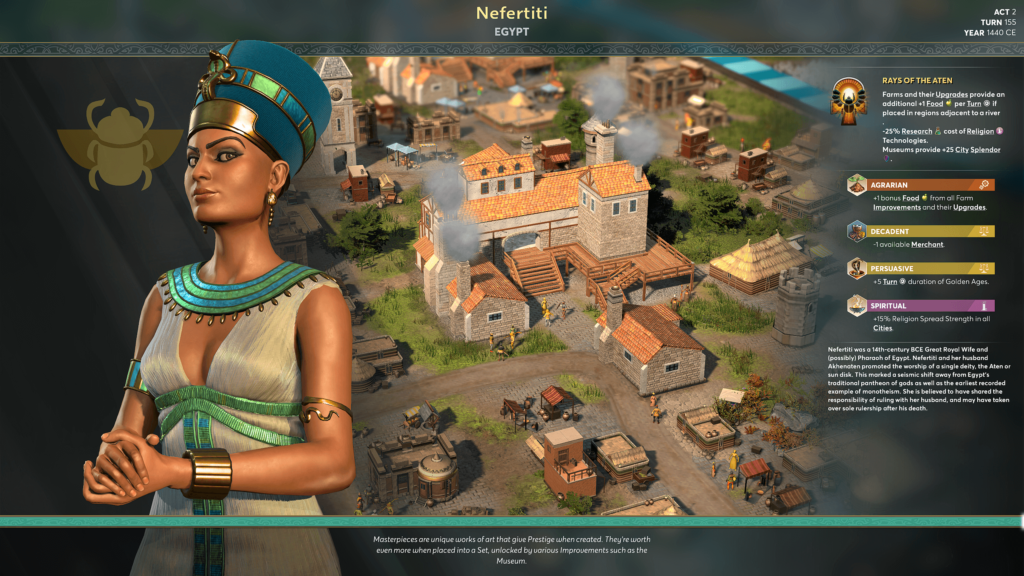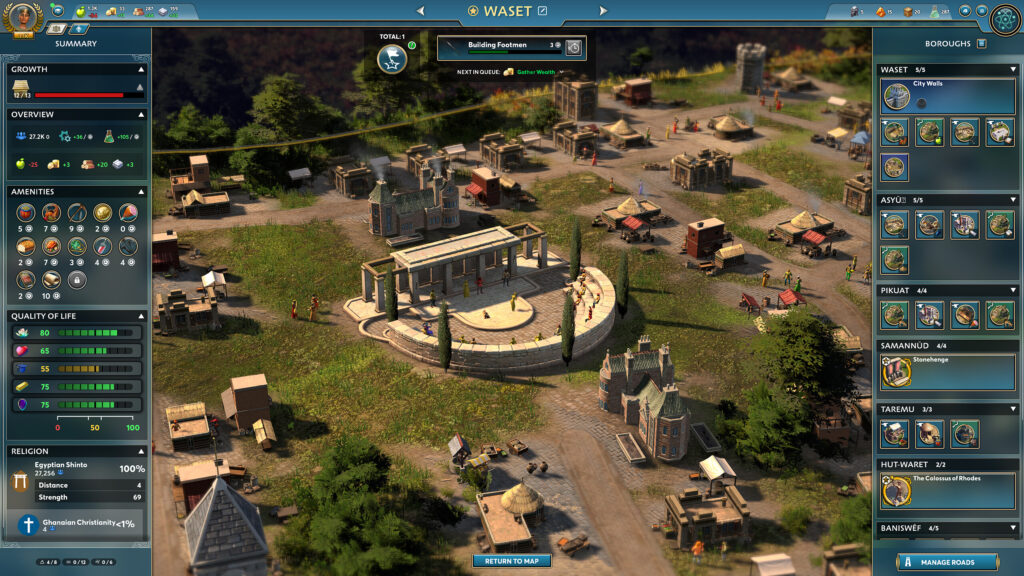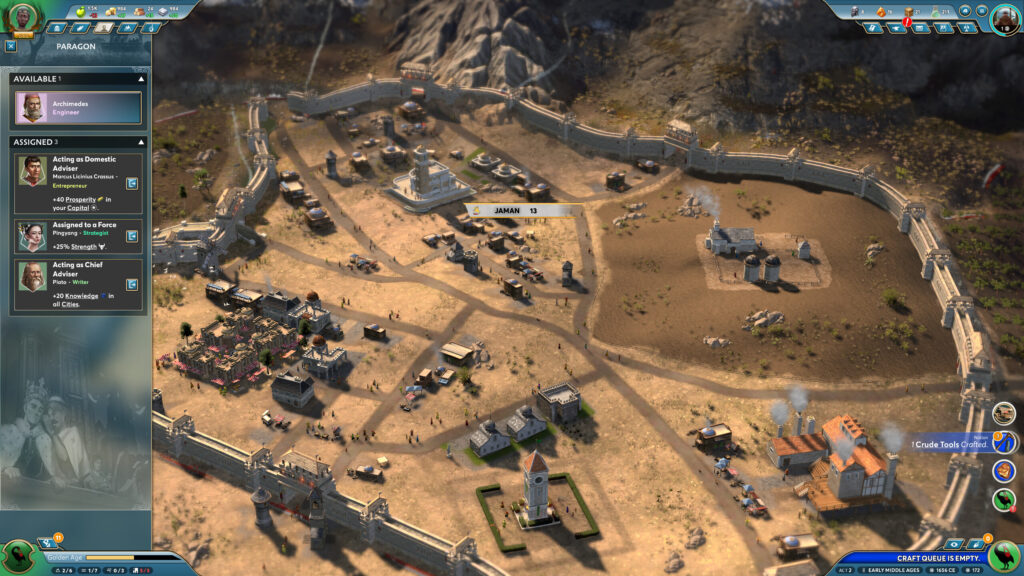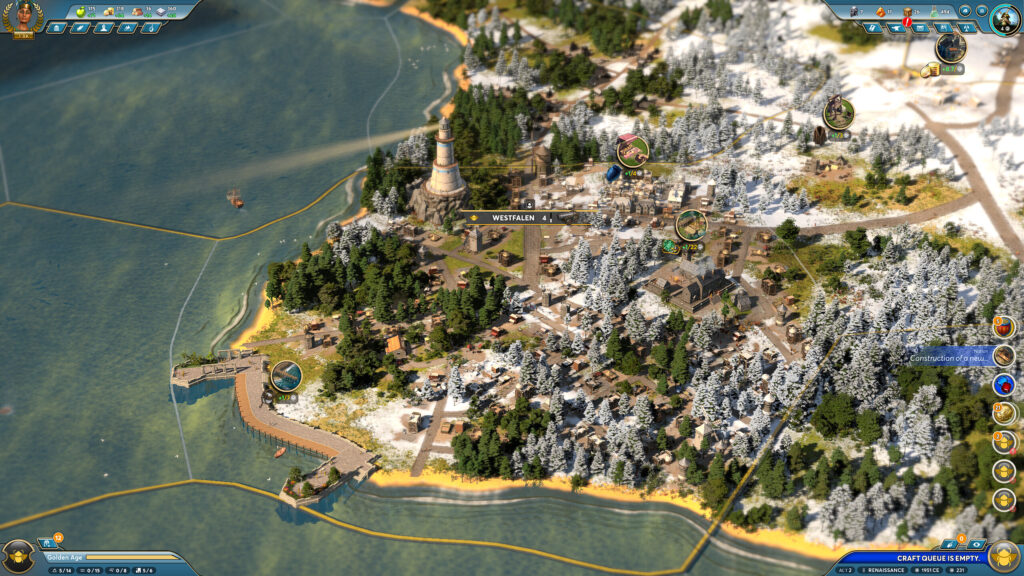Now, the game doesn’t have a story campaign per se; it’s all about the journey of your chosen tribe. Let’s talk about those choices first. When you start the game, you’re presented with a variety of nations to play as. I went with Egypt, my go-to in these kinds of games, but there’s a surprising amount of depth in the selection. Some civilizations I didn’t expect to see, which adds a unique twist. That said, I was a little bummed to find no Dutch option. Guess I won’t be building canals this time—pyramids it is!
Gameplay and Mechanics
Ara’s gameplay feels intricate, maybe even overwhelming at first. As you guide your civilization through twelve eras, you’ll be faced with a vast tech tree. It’s satisfying to research everything from basic agriculture to advanced sciences. However, there’s a catch: once you advance to a new era, any unfinished research becomes locked. You can unlock related tech later, but some perks stay lost. I’m a bit of a completionist, so I made sure to research everything before moving forward. Some of my colleagues weren’t as thorough. One of them unlocked algebra but missed the wheel entirely—resulting in some hilarious consequences, like missing out on chariots.
There’s an interesting balance here. If you rush ahead, you might miss out on critical tools, but lingering too long can make certain discoveries feel redundant. Once you understand the flow of this system, you’ll probably feel tempted to restart and refine your approach. Despite these quirks, it’s a rewarding system that feels central to the game, as the economy and production are far more significant than military conquest.
This is where Ara truly shines for me. I’ve never been great at managing warfare, but Ara’s focus on economy suits my style perfectly. Building production chains and managing resources is the game’s core. You don’t just spend construction points to build; you need to gather timber, stone, and more advanced materials as you progress. Your workshops can churn out everything from bread to televisions, which then fuel other parts of your economy, enhance your cities, or provide bonuses. It’s a deep, interconnected system that feels fresh for a historical 4X game.
Complexity and City Management
To get the most out of your economy, you need to carefully plan your cities. Ara’s cities expand into procedurally generated regions, each offering different levels of resources like food, timber, or gold. What’s neat is that each city zone has limited slots, so you must make tough choices about which buildings or resources to prioritize. Some buildings give bonuses to nearby structures, meaning you can specialize cities into hubs of production, mining, or even luxury goods. This specialization system adds another layer of strategy, as quality-of-life ratings—like health, wealth, and happiness—play a significant role in your city’s development.
But Ara’s depth can also be its weakness. It feels more like a manufacturing puzzle than a traditional 4X, which isn’t necessarily bad, but it’s not for everyone. With no logistics system and roads barely playing a role, it leans heavily into resource management and building optimization. I loved it at first, but a few issues popped up. Diplomacy feels undercooked, with AI civilizations often failing to put up a fight. Even without building an army, I found myself outpacing them easily on medium difficulty. The other problem is the lack of helpful tools for macro-management. Ara is missing crucial features like map overlays or summary screens to keep track of your sprawling empire. Instead, I found myself bogged down by manual tasks—equipping factories with tools, zooming out to figure out why something stopped working, and constantly tracking down resources for various projects. Notifications pop up every time something is produced or consumed, but not when it’s gone, which can lead to frustrating shortages.
Taking over cities isn’t much smoother, either. Once you capture a new region, you might need to move buildings around to fit your setup, leading to a tedious reorganization of your production lines. This wasn’t exactly fun when I played on the Steam Deck—yes, I gave it a shot there too, and it wasn’t the smoothest experience.
Conclusion
Ara: History Untold has much going for it, especially if you enjoy games prioritizing resource management and production over combat. It’s a complex and thoughtful experience that rewards careful planning. However, it’s not without its flaws, especially when it comes to diplomacy, AI challenge, and the game’s lack of automation tools. For me, though, it scratches that 4X itch in a way that feels unique, even if I’m not building the canals of Amsterdam.






